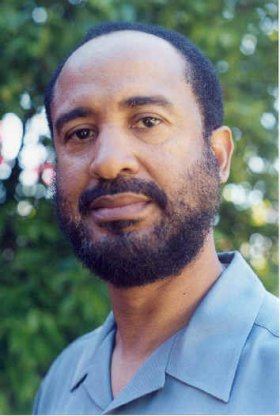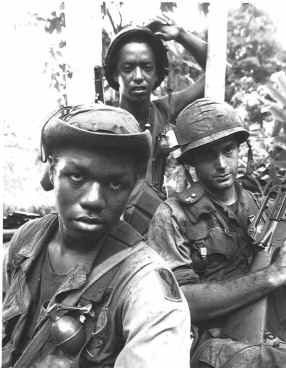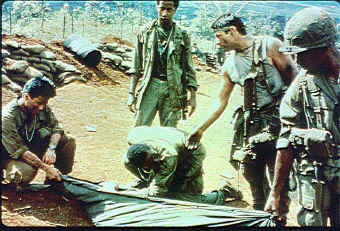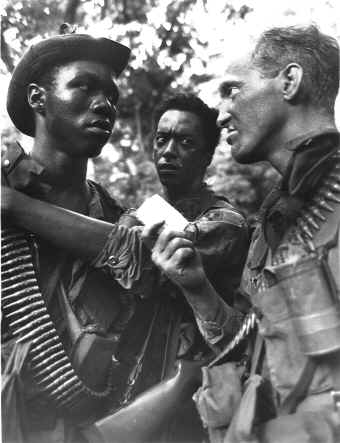Steve Duncan
Steve Duncan co-creator of the television series Tour of Duty.

Steve Duncan co-creator of the television series Tour of Duty.
Co-Creator
Executive consultant
Tour of Duty TV Series
This page is combination of a two stage interview with
Steve
Duncan,
the co-creator of the televisions series ' Tour Of Duty '
conducted 25-30 July 2001.
You can read about his
many other credits and accomplishments
after the interview, further down the page.
**********************************
HUM90:What you think now after all this time that, Tour of duty is being rerun for the third time in a year due to its new popularity amongst a new audience?
STEVE: I’m very thrilled to know that people are still interested in the
series. I even hear it’s very popular in Canada.
Of all of my work, Tour of Duty is what I’m most proud of writing.
This was my “big break” into show business. I hadn’t done anything before
this for the studios or networks. To say the lest, it was an auspicious debut for me.
HUM90:Did the characters evolve the way you hoped they would , when you first
thought about them ?
STEVE: The series bible was originally conceived with about twenty-four characters
who represented the Army, Navy, Marine Corps and Air Force.
In fact, the pilot episode story was originally conceived as a two hour film and followed
the arriving characters from their hometowns to arrival in-country. But the network’s
decision to do a one hour pilot eliminated that part of the story.
The actors that were cast really brought the characters to life and their growth over
three seasons was pretty much laid out in the series bible.
So, even after I stopped working on the series full time, the producers and writers
followed the bible fairly closely. It’s still pretty cool to watch the series and see
the characters that I created alive and talking to each other.
. . STEVE: It feels wonderful. HUM90: How did you and L. Travis Clarke , set about selling your idea to the TV
bigwigs ?, if indeed you did , as I don't know how this sort of thing works, did you
sell the idea to Zev Braun and then he took it from there ? How hard was it to get them to
agree to the idea, I read that Kim Le Masters was keen on the idea and he helped
push through the idea , do you know anything about this , that you could explain for me ? STEVE: In Hollywood, they say it’s who you know. Of course, there was some pushing and pulling of ideas during the development
stages. all in all, everyone wanted to do the series, so it was simply a matter of
coming together creatively. But it still wasn’t easy since we had never done a
network series before. There were other writer producers with more experience also
pitching Vietnam series ideas to CBS. When I found out the creators of “Thirty-something” were
pitching, I just knew it was over for us. . HUM90: You mentioned the "series bible", would I be right in
thinking this to be the characters backgrounds which have already been worked out
before the series starts , so writers couldn't suddenly change a characters hometown
for instance ? STEVE: Yes. They are just short sketches used mostly to establish basic background
information such as age, hometown, attitude, rank, military speciality. HUM90:Do you have any Tour Of Duty memento's ? STEVE: I have a large movie style one sheet poster and a crew jacket. I can't
really scan the big poster because of size and the fact it's professionally sealed in a
frame. HUM90:When did you stop working on the series full time ?
HUM90: How it makes you feel ,to know that through your idea and writing, that you
are helping in someway to enlighten a new generation about the Vietnam war , who may never
have shown an interest before watching your show ?
My older brother, Michael, served in the First Infantry Airborne Rangers, was a company
commander (Captain, U.S. Army) and did LURP duty (Long Range Recon Patrol) during his tour
of duty. I was in college at the time and wanted to follow in his foot steps and become an
Army Ranger too. But he strongly discouraged me. Instead I got a commission as an U.S.
Navy officer. But it was many of his experiences that went into my writing and development
of the series. I also had many friends who served and returned from ‘Nam. I also lost
a lot of high school buddies to the bush.
It’s really great to see the “Tour of Duty” series holding it’s
own up against all the factual programs being aired on stations such as the History
Channel.
War is ugly, always has been and I’m proud to say that “Tour of Duty”
is still helping to point out that fact to people young and old.
Well, Travis knew Kim LeMasters. I think they jogged together several times a week. So,
that’s how we got to pitch the big wigs at CBS.
I had met Travis through a mutual friend and he knew I was very interested in the Vietnam
War, a voracious reader about it and had become somewhat of an expert. As a naval officer,
I was very involved in the press relations for the Vietnam POWs and, of course, had a lot
of scary true stories to tell.
So, once Kim LeMasters decided he wanted to do a series about Vietnam, it was a matter of
finding a production company who would finance this very expensive series. Zev Braun had a
development deal at New World Television, they had a lot of money, and a marriage was
made. Since few people really knew about Vietnam from the soldiers’ perspective (many
of veterans were not talking about their experiences to friends and family), we had to
educate the network executives on everything. We even put together a dictionary of terms
used by soldiers so they could understand the dialogue in the scripts.
But we had the real deal in our ideas and concept.
I was able to make the hair stand up on the necks of executives during pitch meetings. So,
we got the opportunity to write the pilot. Since I was a Lieutenant Commander
in the U.S. Naval Reserve at the time, getting the Pentagon to work with us was fairly
easy. I think that helped to sell the series too.
I knew the right officers in the Public Information Office back in the Pentagon on a first
name basis because I had worked with most of them while on active duty. But from the
production side it was Executive Producer Ron Schwary who really helped to smooth out the
wrinkles. It was going to be a very expensive pilot (it cost $3 million to produce the one
hour pilot episode, a lot of money in 1987) and we needed Army assistance. He also knew
key U.S. Army officers in the Pentagon and we were able to get 100% military co-operation.
It’s not well-known, but the series “China Beach” was being
developed as a half-hour version of “MASH” in Vietnam with a focus on nurses.
When Warner Brothers got wind of “Tour of Duty” they changed their dark
comedy series to a drama about women.
When the network screened the pilot episode to an audience of Vietnam Vets and the Armed
Services Committee in Washington, D.C., there was laughter and tears. We knew we were on
to something then.
And please don't ask for the jacket. :-{)}
And what involvement did you have after that time, what did it consist of ?
Since I was an Executive Consultant, not a producer, I was still able to work on other
projects. After the first season, I had no direct involvement with the series which is not
uncommon for a first time series creator. In fact, I went on to work full-time on an ABC
series called "A Man Called Hawk" this time as a writer-producer during the
second season of Tour of Duty.
HUM90:I have already found out
through and interview I did with Thomas Peterson, (TOD editor ) that TOD shot for 7 days
on average for each episode.
I was wondering how many days it took you to write a completed script, before any
re-writes & edits?
STEVE: Television works
very fast. You have a week or so to develop a story.
Once the story's approved by the studio and network, you have to write the first draft in
a couple of weeks (usually less time). You get notes from everyone, then do a final
rewrite in several days.
HUM90:Did you go on set
at all during the filming of TOD ?
.
HUM90:Can you describe what was it like to see, (actors as,) your characters walking about and perhaps even talking to you about things ?
I imagine that would have been quite strange.
STEVE: I visited the set of the pilot without the actors knowing I was there.
I sort of lurked around to observe how they got along when the camera wasn't rolling.
Then once I was discovered, I interacted with them. But then everyone was a bit nervous since I was the series creator.
Oddly, it didn't feel strange to me to see the actors in their roles. It felt very right.
At this point, with the crew running around trying to get shots between rain cloud bursts, it became just plain work. And the set was very rugged. Mug. No trailers, only equipment trucks. There were only a few military style tents.
When it rained you pretty much got wet. When it was hot, you sweated. It was like being in the bush in 'Nam.
HUM90:Did you make a cameo appearance in the background anywhere ?,( like Hitchcock in his films) STEVE: No.
HUM90: The unfilmed pilot episode "operation redstar" , was this the first draft that you pitched with ?
STEVE: "Operation Red Star" was the backup script.
This is a script generally ordered by the network while the pilot is in production so that the producers will have something that's considered more of a typical episode (since the pilot is the prototype and more expensive).
This script was so rich in story and texture, it actually became two separate episodes written by other writers. I took that as a compliment not a slam.
One of the stories that came out of the backup script was the tunnel rats episode.
HUM90:About the pilot episode, Once you had the idea sold, how long did you have from the agreement to
film to the first actual shots were filmed ?
STEVE: It took 7 or 8 months from the time the network said they wanted to do the series to the actual shooting of the pilot. During that time, the concept that was originally sold was modified a bit, and I went through the process of developing and writing the pilot script which took about two months.
 HUM90:As the original idea was to have 24 characters
in the 2 hour pilot, Which if any character, survived the cut and made it through to the
character we see on the screen ?
HUM90:As the original idea was to have 24 characters
in the 2 hour pilot, Which if any character, survived the cut and made it through to the
character we see on the screen ? Is there a little of you in any of the characters ?
STEVE: The original core
characters were always the core of the series. The idea was to bring in other services as
the series progressed. And yes, the character of Marvin Johnson played by Stan
Foster does have some of my ideals and point of view toward life. But the character has a
very different background than I .
Stan foster
as Marvin Johnson (front)
HUM90:The character of " Private Roger Horn", (played so well by Joshua Maurer) ,
by announcing his opinions about the war allowed a different view point to the war to be
directed through that character , how important was it to you that the series explored
different areas of the Vietnam experience, and was the character of Horn created to fill
such a role ?
STEVE: Each of the
series' core characters were designed to hold a specific point of view about the Vietnam
War.
This was a very important part of how the series was developed. The goal was to have the
war affect these points of view over the course of the series and show how Vietnam and war
in general can change people in a real way.
Horn was the draft dodger, flower child, hippie war protester. The idea was to have him
become more patriotic and have his eyes well-up whenever he sees the American flag upon
returning home.
.
HUM90:In the pilot we met all
of the characters, everyone watching has a favourite ,
As the co-creator of TOD , which one did you enjoy writing for most ?, as asking you
to choose a
favourite would be to unfair.
STEVE: It's not an
unfair question. Marvin Johnson is my favourite character.
In fact, Stan Foster and I became friends while the series was running the first time. We
worked on several projects together none of which got off the ground. Unfortunately, I've
lost touch with him.

HUM90:The dramatic start to
the pilot in its self was a little unusual for an show at the time, (although not unique),
After the night time battle scene, we are straight into the reality of war's brutality by
'Johnson' searching and finding his dead buddy 'Mickey' .
How important to you was it to get across as soon as possible (to the
audience ), that TOD was going to be different to what they had seen before and their
favourites where just as likely going to die as the bad guys ?
STEVE: The whole idea of
the series was to show the audience that in war people on both sides die.
That's the reality of war. We also killed another character who seemed to be a part of the
core characters when he steps steps on a land mine later in the pilot.
HUM90:The episode “Burn,
Baby, Burn.” which you wrote.
Did you encounter any problems with the studios, army or network over the subject matter
of this episode.
STEVE: None at all.
The studio, network and the army loved the story and the first draft. There were only
minor rewriting before it was shot.
The key to getting the army (or any branch of service) to support the existence of racism
was to show that the army as institution is the solution the problem.
Wrapping it all up in a murder mystery also helped.

HUM90:I have heard that
although supported by the army for the first series they did have some approval on scripts
?
STEVE: During the first
season in Hawaii, the army approved every single script.
That was among the reasons the series moved to Valencia, California, along with the cost
of filming in Hawaii.
HUM90:They probably weren't
entirely thrilled to discover the subject of racial tension with in the platoon, but
credit to the army for letting the series cover such a sensitive issue.
STEVE: No, the army
wasn't thrilled. As I said, the solution was to show that the army helped solve racial
problems among it's ranks. It's a well known fact that racial tensions existed in Vietnam
and the army realized they couldn't get around that.
The only compromise was not to show that the black and white soldiers actually lived
segregated, which was the reality of early Vietnam. It wasn't from army policy, it's just
the way the soldiers wanted it. Which should not have surprised anyone since it was like
that here in the U.S.
HUM90: Could you tell me why
you choose to write this particular episode ?
Is there a personal story behind it , or was it a means to an end dealing with the racial
issue in one episode rather than over several ?
STEVE: I chose to write
"Burn, Baby, Burn," because it gave me an opportunity to show the irony of the
war. Here these guys are suppose to be on the same side fighting for America when back in
the states, the racial divide was very wide and, in fact, there was a war on black people
going on, specifically the FBI's war against the Black Panthers.
There is a personal story behind this episode.
While in college I got caught in my dormitory during a six hour shoot-out between the
Black Panthers (who were on the roof of the dorm) and the police. The army reserve 82nd
Airborne was called in and attacked us at sunrise using tear gas and live rounds.
Miraculously no one was killed.
That was my little taste of what it was like in Vietnam.
HUM90:How much do you think ,
if at all, the films of the time ' Platoon', 'Full Metal Jacket' and 'Hamburger
Hill', helped with the popularity of Tour Of Duty ?
STEVE: There's no doubt that the buzz going on over "Platoon" helped the
CBS decide to do a Vietnam series. In fact, the military advisor on Platoon worked on Tour
of Duty briefly the first season. The other films helped to fuel the week to week interest
in the TV show.
HUM90: The decision at the time
to air Tour Of Duty against ' Cosby ', ( the first time out ,1988 ) was seen as a bold decision
offering viewers a distinct choice,
In your opinion & hindsight do you think it would have been more successful at another
time slot ?
(even though you didn't have an option in the time it went out).
STEVE: I thought it was
brilliant move by Kim LeMasters. It was ideal counter-programming. The audience that
watched Tour of Duty did not watch Cosby or taped it. In hindsight, I think the network
did the right thing. It also generated a lot of publicity for Tour of Duty.
Ironically, after I left Tour of Duty, the series I was working on, "A Man Called
Hawk" aired opposite Tour of Duty on Saturday nights. So I had competing shows on at
the same time. So my friends had to have two videotape machines going!
.
did this worry you at all ?
STEVE: No. I thought it highly appropriate and symbolic. Less we forget, during the war, network news programs bought the actual Vietnam War to us every night during dinner time.
HUM90: There are fans who wish for a re-union show to be made, feeling that as the ending left to many things left unfinished, (due to the show not returning for its planned 4th series)
Having co-created Tour of Duty and seeing how it ended,
How do you feel about a re-union show ?
STEVE: It would be very nice. You and the fans should do a letter writing campaign to Sony/Columbia TV. They're the studio that owns the series.
HUM90:Thank you again for your time and kindness in helping me with the website.
STEVE: You're welcome. Thanks for keeping the series out there in cyberspace.
|
|
|
|
|
|
________________________________________
Three
Black teens are missing and "Presumed Dead." Only one Black man can
save them. Buy Steve Duncan's novel "Presumed
Dead."
or go to the website, click Bookstore and search the novel title.
Paperback.Buy it today...
_________________________________________
HOME
Credits/Resume
Writer, “AMENDMENT 25,” feature film option at NuImage Entertainment (‘97). Option at Lion’s Gate TV (‘00).
Consulting Producer, “Auricon,” an independent film.
Kusza Productions (‘97).
Co-writer-Producer, “The Liberation of Tall Pines,” Option with New Star Pictures (‘97).
Co-Creator,
Supervising Producer, “WIVES-IN-LAW,” half-hour comedy series in development at Aaron
Spelling Productions, Inc. (‘92).
Writer, “Paris Metal,” a CBS-TV late night series, wrote two episodes (‘90).
Co-Writer, “THE COURT-MARTIAL OF JACKIE ROBINSON,” Turner
Network Television original movie, VonZerneck-Sertner
Films (‘90).
Co-Creator, Executive Consultant, “TOUR OF DUTY,”
CBS-TV one-hour Vietnam War series New
World Television. With pilot, wrote a back-up script and the episode “Burn,
Baby, Burn.”
This series ran for
3 years (‘87-89).
Staff Writer-Producer, ABC-TV one-hour action series “A MAN CALLED HAWK.” Warner Bros. Television.
Wrote three episodes: “Choice of Chance,”
“Never My Love,” and “How Beautiful The Stars.” This series ran for 13 episodes (‘89).
Co-Creator,
Executive Producer, “THE JUDGE,”
one-hour
drama pilot Script in development at Aaron Spelling Productions, Inc. (‘89).
.
Co-Creator, Bible, “RICH RELATIONS,”
half-hour daytime soap opera drama in
development at NBC Productions for NBC-TV
(’89).
Writer-Producer, Bible, “THE SAGON PENN STORY,”
four-hour mini-series in
development at Fries Entertainment for NBC-TV (‘88).
Co-Writer
& Story, Producer, “NAOMI’S RAIDERS,”
in development for Tri-Star Pictures (‘88).
Co-Writer
& Story, Producer, “UNDER ONE ROOF,”
in development for Tri-Star Pictures (‘88).
Movie of
the Week in development at New World for CBS-TV (‘87).
Co-Creator,
“PALS,”
half-hour
comedy Pilot script, in development at Procter & Gamble Productions for CBS
(‘87).
Educator Experience
Assistant Professor
(tenure-track), Loyola Marymount University
(99-Present)
Visiting
Professor, Loyola Marymount University (98-99)
Screenwriting Lecturer, Loyola Marymount University (‘95-98).
Screenwriting
Instructor, UCLA Extension Writers Program (‘93-Present).
Pioneered the Internet Online screenwriting sequence of courses at UCLA Extension
(94).
Continue to teach screenwriting online.
Mentor/consultant, European Film College to Danish
screenwriters developing pilots for Danish television
(96-97). Travelled to Denmark twice.
Publications
“Presumed Dead.” September 2000.
Fiction novel. Writers Club
Press. iUniverse.com.
“Writing For Film & Television.” Burham Publishing Inc, Chicago. Publication date: 2002.
Other
Experience
Independent
Writer-Producer-Director of Industrial Film & Video, (1985-96)
U.S.
Naval Officer, Public Affairs, active duty -1972-79, reserves - 1980-90).
Attained rank of
Lieutenant Commander.
Training
& Audio-Visual Services Manager,
Nestlé Corporation (1979-85).
Organizations
Member, PEN Center USA West (2001-Present)
Member, Writers Guild
of America West (1986-Present).
Member,
Academy of Television Arts & Sciences.
Member of the Writers Peer Group
Executive Committee (96-98)
Member, International
Television Association (79-95)
Awards
Screenwriting Instructor of the Year,
UCLA Extension Writers
Program, 1996.
Silver Angel, Company News Video, International Television
Association, 1990.
Silver Angel,
Corporate Training Video, International
Television Association, 1988.
Golden Angel,
Corporate
Training Video, International Television Association, 1987.
Silver Angel,
Corporate Training Video, International Television
Association, 1987.
Education
Master of Arts,
Communication Arts, Television & Film, Loyola Marymount University, 1979.
Baruch College, New York, MBA
Studies in Advertising & Marketing, 1973-76 (professional studies, no degree).
Bachelor of Science, Art Design,
North Carolina A & T State University.
• • •
This site is owned and maintained by Craig Blackmore. All photographs and other material used is from my private, personal collection.
CopyrightÓ2000/2020
Craig Blackmore. All rights Reserved.
Affiliate Links -I use
affiliate links across my site. Affiliate links basically mean when you
click on them and shop ,
I earn a small amount of commission from your purchase, as long as you
complete your purchase within 24 hours. It is not more expensive for
you, nor does it effect your shopping experience.
Thank you for your support.
This site is an UNOFFICIAL fan page. I am in no way
associated with
Tour Of Duty or those that work on the
show. While I do occasionally contact people who worked on the show for
information, that's all.
The intention of this site is NOT in any way to distribute copyrighted
material illegally. My intention, as a dedicated fan to a television show 'Tour
of Duty' is to provide other fans with accurate information and resources.
The pictures, screen captures, sounds and anything else found on this site that
is directly from 'Tour Of Duty', is owned
by the respective authors. I take no ownership of these things.
0
|
|
|
|
|